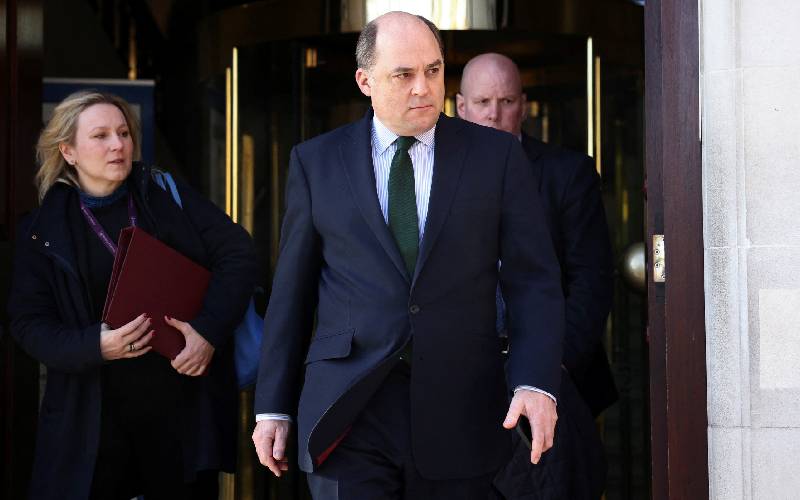×
The Standard e-Paper
Kenya’s Boldest Voice

British Defence Secretary Ben Wallace leaves a television studio in central London, Britain, on February 25, 2022. [Reuters]
British defence minister Ben Wallace said on Monday that he does not expect Russian President Vladimir Putin to use nuclear weapons in his pursuit of Ukraine, days after the former Soviet republic invaded its neighbour.